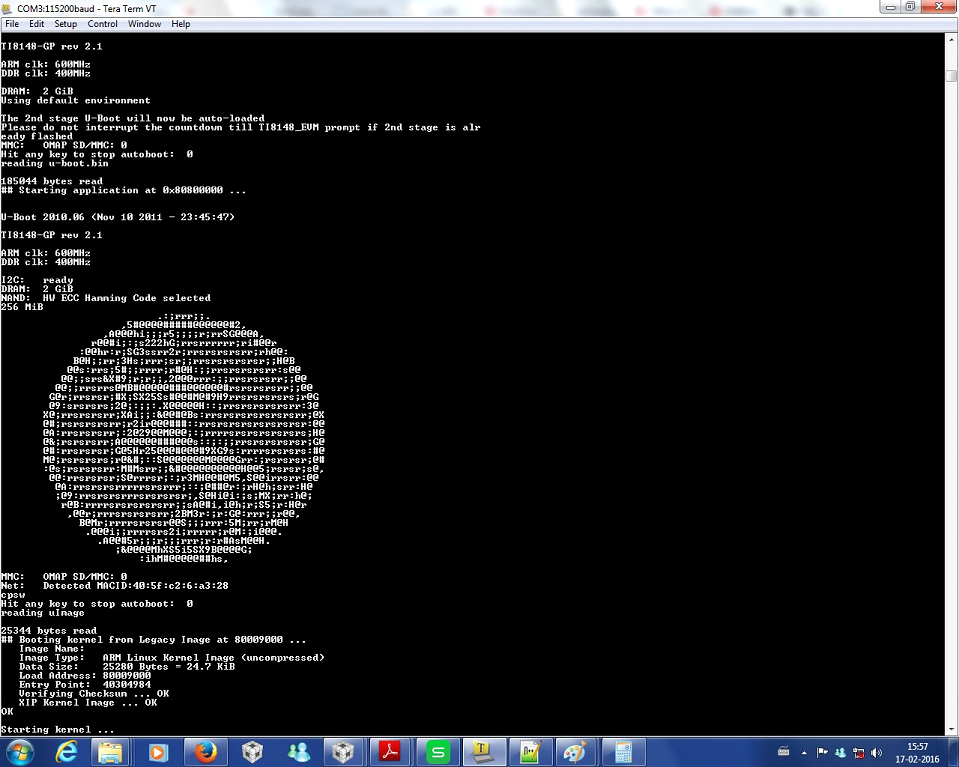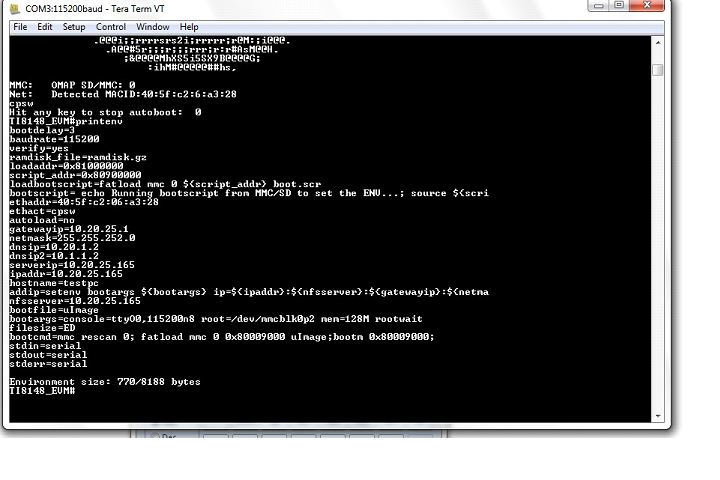Hello Ti,
I am developing a simple bootloader for ARM on DM8148 evm board.
I am following the steps mentioned in below link.
processors.wiki.ti.com/.../DM814x_AM387x_PSP_U-Boot
but when I am trying to boot, Its showing "Starting kernel ... " on terminal.
So my questions,
How do I know my code is working or not?
is uart out will work without gel file intialisation?
or printf() function can show output on terminal?





